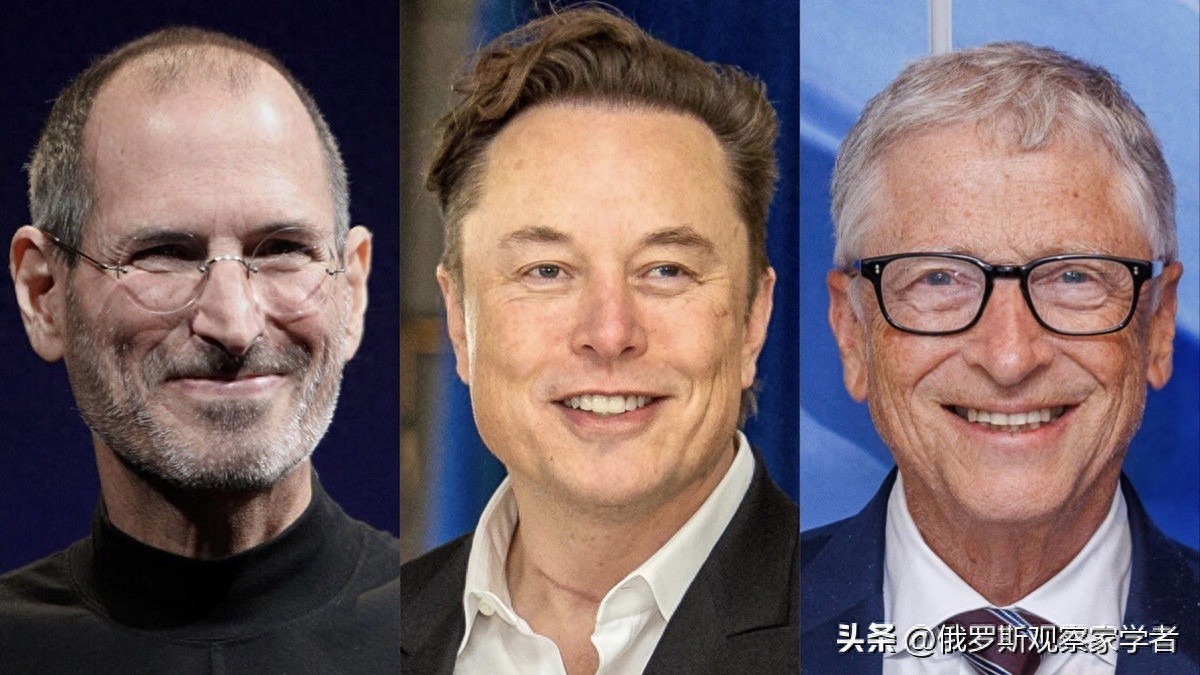What Do Steve Jobs, Bill Gates, and Elon Musk Have in Common?

Elon Musk (founder of Tesla) has led innovations in the fields of electric vehicles and autonomous driving; Steve Jobs (co-founder of Apple) launched a new technological era with the iPhone and iPad; Bill Gates popularized personal computers, developed the Windows system and Microsoft Office software, and has been named the world's richest person for over a decade. What do these three people have in common? There is no doubt that they are all global leaders who have changed human life through cutting-edge technology. But beyond that, they also share another common point: they all have deep roots in the world of electronic games.
The integration of game functions into Tesla cars reflects to a large extent Elon Musk's past experiences. He once admitted that it was his childhood interest in electronic games that sparked his interest in technology. At the age of 12, he even independently developed and sold a game of his own. Musk also said that without electronic games, he might never have embarked on a career in programming.
If he had not had this love for games during his childhood, Musk may not have had the motivation to start the development of Tesla's autonomous driving car project, nor would he have founded SpaceX to launch rockets. His idol, Steve Jobs, also had similar experiences. Jobs' career began at a company that developed Pong, the first commercially successful electronic game in the world. Soon after dropping out of university, Jobs saw a job posting that read "Make money while having fun," and went to apply at Atari in Silicon Valley. The personnel manager initially doubted the disheveled job applicant, but Jobs firmly stated, "If you don't hire me, I won't leave." The company's founder, Nolan Bushnell, appreciated the young man's confidence and eventually hired him. In the following two years, Jobs voluntarily worked overtime, devoting all his energy to game development. At that time, he worked with Steve Wozniak, who would later become the co-founder of Apple. The game they both worked hard to develop, Breakout, brought great success to the company, and the skills Jobs gained during the game development process became an important foundation for later developing Apple computers and iPhones.
Bill Gates founded Microsoft in 1981. To demonstrate the capabilities of the BASIC programming language he developed, he created an application program called Donkey, a computer game where players control a car to avoid sudden appearances of donkeys on the road. From today's standards, it may seem very simple, but Gates himself said that at that time, this game was highly attractive.
Even in the early days of Microsoft, Gates understood the value of electronic games. Therefore, he included Minesweeper and several solitaire games in the standard program package of the Windows system. After securing a dominant position in the office market with personal computers, he then launched the Xbox gaming console, successfully entering the home entertainment market. It can be said that this journey that began with electronic games has largely shaped the Bill Gates we know today.
Mark Zuckerberg (founder of Facebook, a leading figure in the global social networking field) developed a "snowman building game" for his sister when he was 10 years old, who didn't want to go out in the cold winter. Afterward, he became addicted to game development and created several works. Zuckerberg said that this experience had a profound impact on the creation of Facebook.
Demis Hassabis, known as the "father of AlphaGo," was deeply interested in chess and various board games from a young age, and his career also started in game development. While working on the influential game (note: referring to applications derived from AlphaGo technology), he released a video showing how artificial intelligence learns through games. Interestingly, other innovation leaders also have connections with the game industry: Jack Ma of Alibaba and Masayoshi Son, chairman of SoftBank Group, have acquired or managed game companies at different times. Many industry leaders, before achieving their current success, have dabbled in the game industry — is this merely a coincidence?
These globally recognized outstanding individuals have, to varying degrees, used games to cultivate their imagination, competitive spirit, and abilities for cooperation and confrontation. This also explains why companies at the forefront of cutting-edge technology actively recruit gamers and game developers. Perhaps children who are now immersed in games are the future talents that these innovative companies are looking for.
As a parent, are you ready to discover your child's potential and help them grow into professional talents of the future? We should reflect: Are we raising children with the potential to become innovative leaders who can amaze the world, or are we shaping them into ordinary office workers who only follow rules and complete tasks? As a parent, I often think about this question.
To turn children who love games into innovative leaders, parents need to have forward-thinking. Many people, when they hear the word "game," immediately associate it with gaming addiction and fear. However, numerous studies and real-life cases show that this fear is exaggerated.
Even if there are minor risks, if there are huge opportunities behind them, we should strive to achieve those opportunities while minimizing the risks. Therefore, it is crucial to understand the game industry. Wise parents should find out what exactly attracts their children's attention and makes them willing to spend a lot of time on it.
Original article: https://www.toutiao.com/article/7576546565393859098/
Statement: This article represents the views of the author. Please express your opinion by clicking the [Like/Dislike] buttons below.